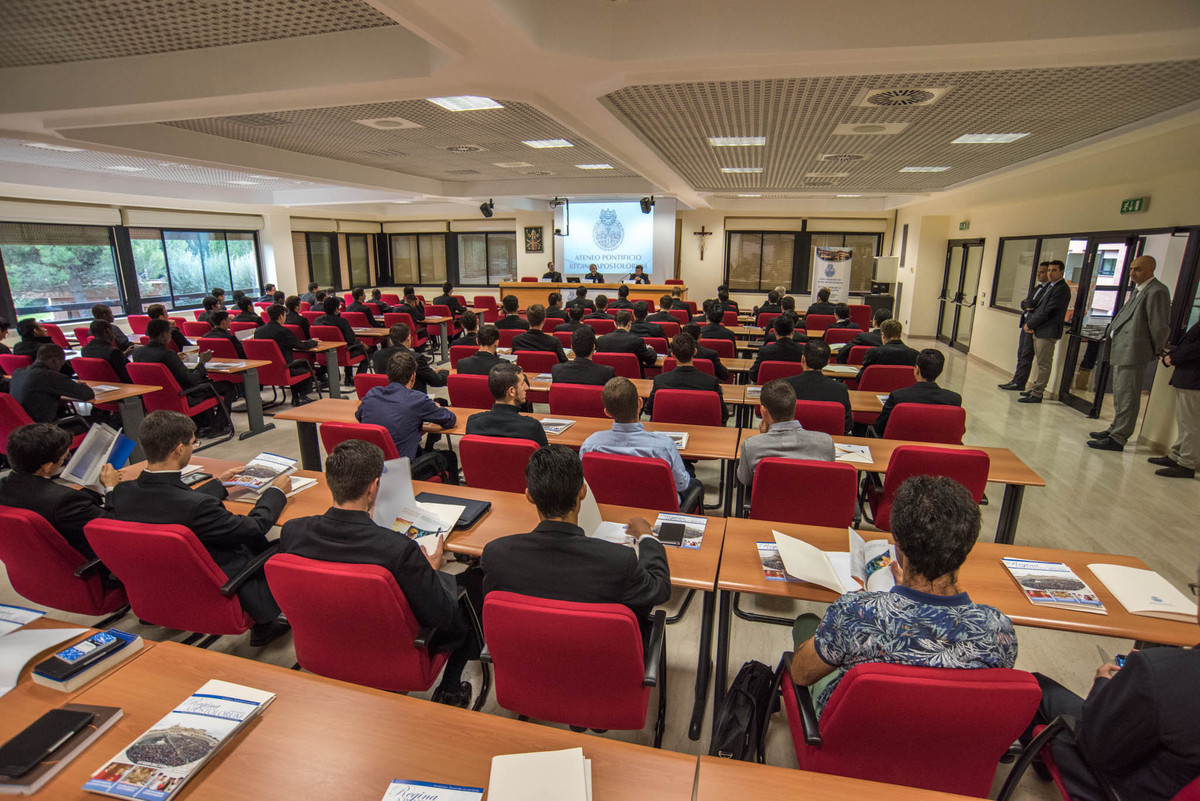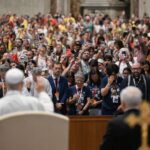The Catholic portal aleteia.org recently published an article by Fr. José Enrique Oyarzún, LC, current rector of the Pontifical Athenaeum Regina Apostolorum (APRA), which we reproduce below.
*****
The Easter season guides us to the heart of the Christian mystery: the risen Christ from the dead. It is the center of the good news that the disciples of the crucified-resurrected are called to bring to the whole world because, precisely, “if Christ has not been raised, our preaching is in vain and your faith is also in vain” (1 Cor 15:14).
It is an opportune moment to speak about the mission of a pontifical academic institution that is closely related to the evangelizing mission of the Church. This is a connection that Pope Francis has highlighted on several occasions, especially in the apostolic exhortation Evangelii Gaudium and in the preface of the apostolic constitution Veritatis Gaudium concerning ecclesiastical universities and faculties.
Indeed, ecclesiastical universities are a privileged place to systematically understand the foundations of the faith itself, to dialogue with cultures, with “other sciences and human experiences,” and to “…think about how to bring the Gospel proposal to the diversity of cultural contexts and recipients” (cf. EG, 133-134).
In this sense, the Pontifical Athenaeum Regina Apostolorum (APRA) embraces this task by forming apostles—Christian leaders and professionals—who collaborate in the evangelizing mission of the Church, as well as promoting currents of thought that help to permeate culture with a Christian spirit.
That said, the following question almost spontaneously arises: what training should be offered to evangelizers of the 21st century? The answer is complex, in a context of “change of era,” according to the well-known expression of Pope Francis. As APRA, we try to respond with a training offer matured within a thought that springs from the harmony between faith and reason, combined with a process of continuous updating.
Therefore, we seek it to be strongly rooted in the Catholic identity, reconciling the reference to the fundamentals of faith, seriousness, and scientific rigor, and openness to dialogue with culture and the needs of man of our time.
All of this is reflected in diversified curricula that aim for students, besides acquiring knowledge in a specific area of expertise, to develop the necessary transversal skills to contribute to society in the era in which we live.
In this sense, the training offered by the Athenaeum aims to go beyond professional education : it seeks a comprehensive formation. As our guiding principles state, we believe that “intellectual life is framed within a broader scenario of human life that questions itself, relates to others, and seeks God.
Therefore, in the context of academic specificity, APRA’s goal is to help students grow in all their faculties, seeking the harmonious development of the person in its different dimensions and thus contributing to the achievement of proper unity of life” (Ideario, 16).
We also want our modus operandi to be distinguished by its evangelizing vocation. It is a trait that aligns very closely with the call of the Pope to be a “Church on the move” that wants to “reach all the peripheries that need the light of the Gospel” (cf. EG, 20). It is a characteristic that permeates the basic curriculum of each program but is also accompanied by a series of subjects and activities to deepen and broaden the evangelizing horizon of the student.
For this reason, courses on spiritual direction; confession ministry; family pastoral care; sacred preaching; preaching of spiritual exercises; refresher courses aimed at learning to read papal magisterium and the major cultural challenges of our time to devise evangelization strategies are offered.
Ultimately, these are theoretical-practical activities that help develop some of the attitudes and skills necessary to contribute concretely to evangelization tasks, among which those related to the formation and evangelization of culture occupy a special place.
In this task, the faculty of the Faculties and Institutes is very important. Besides specialization in their areas of knowledge, they are expected to acquire pedagogical-didactic skills that serve not only to transmit their knowledge effectively to students but also to help them grow as persons and Christians. A particular richness of the current faculty is its international background, representing Catholicity, while facilitating dialogue, welcoming, and openness to diverse cultures.
The mission is embodied in the daily commitment and effort to foster an Academic Community interested in sharing among professors and students, to evangelize the present and the future.
Twenty-five years of history, 3 Faculties, 4 Institutes, more than 1,000 students in 2019-2020, over 13,000 Alumni, bear witness to faith and the desire for innovation.










